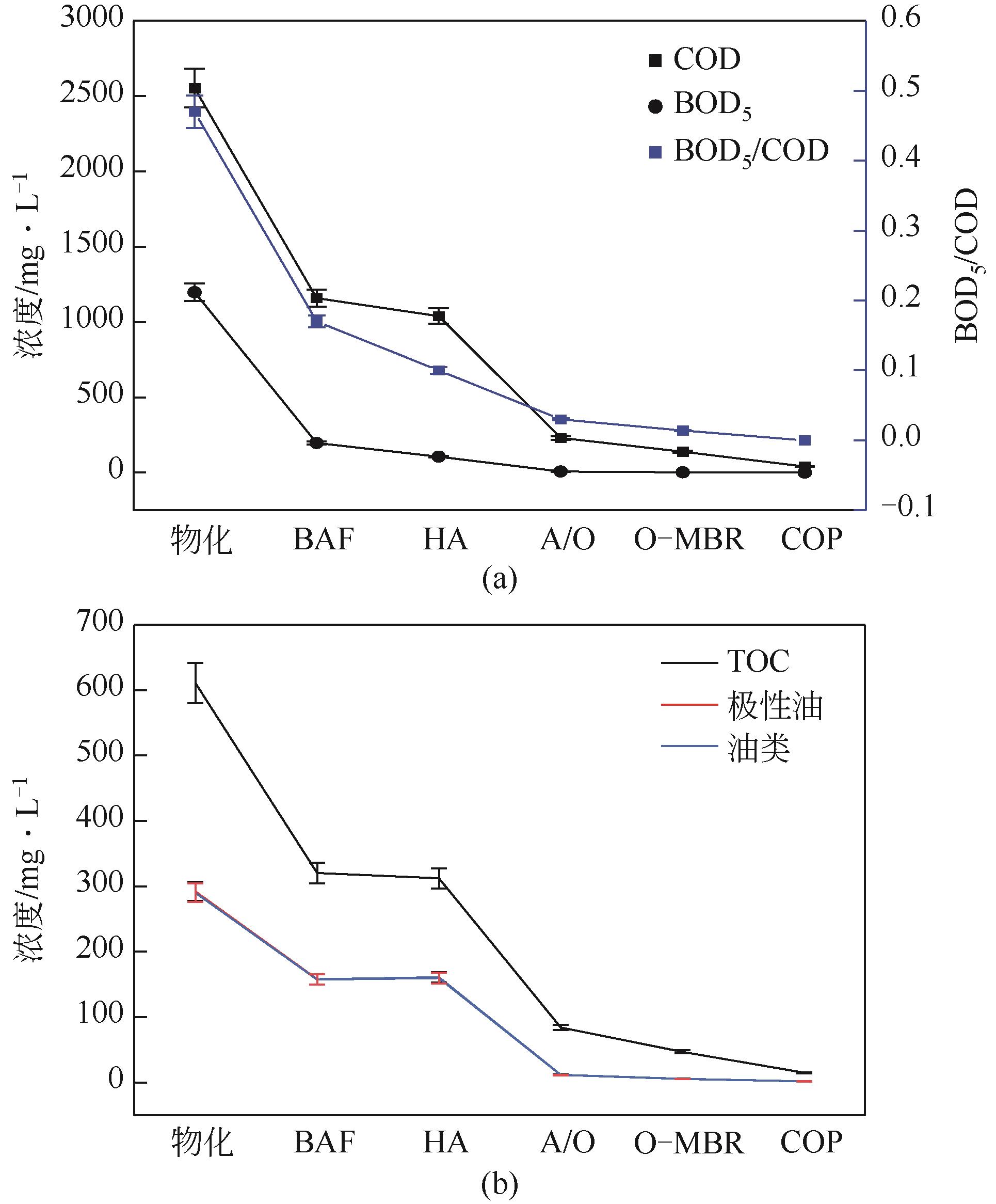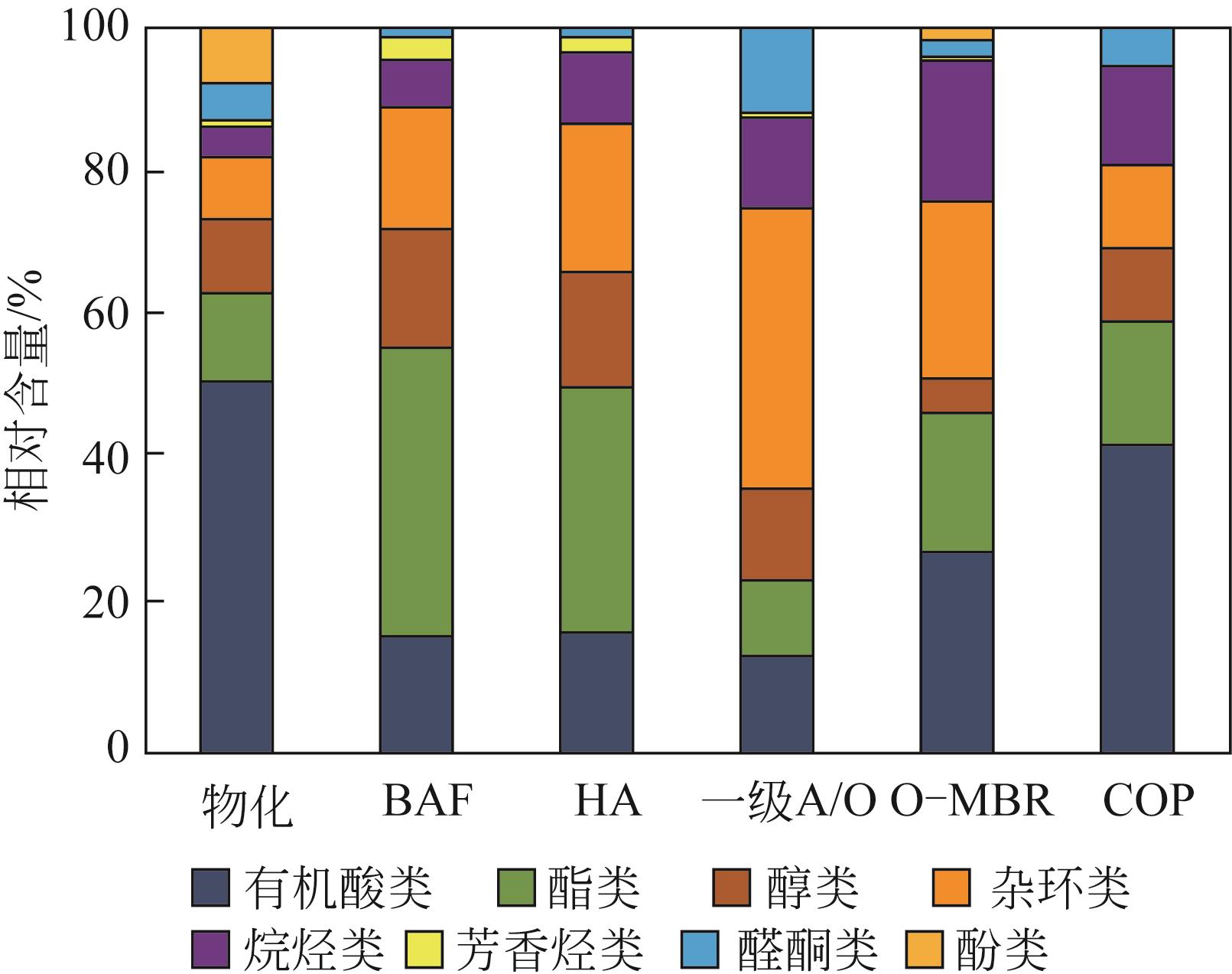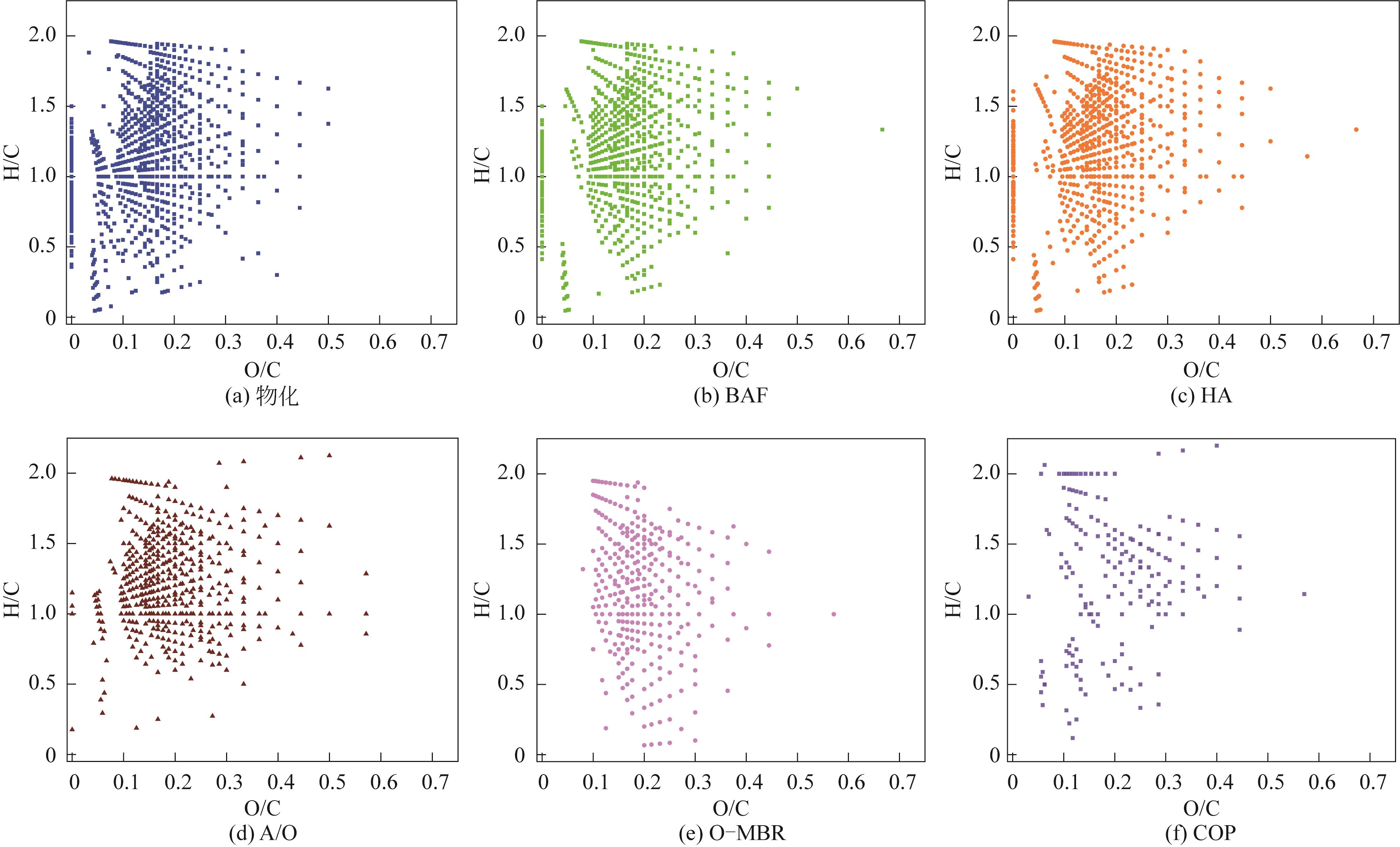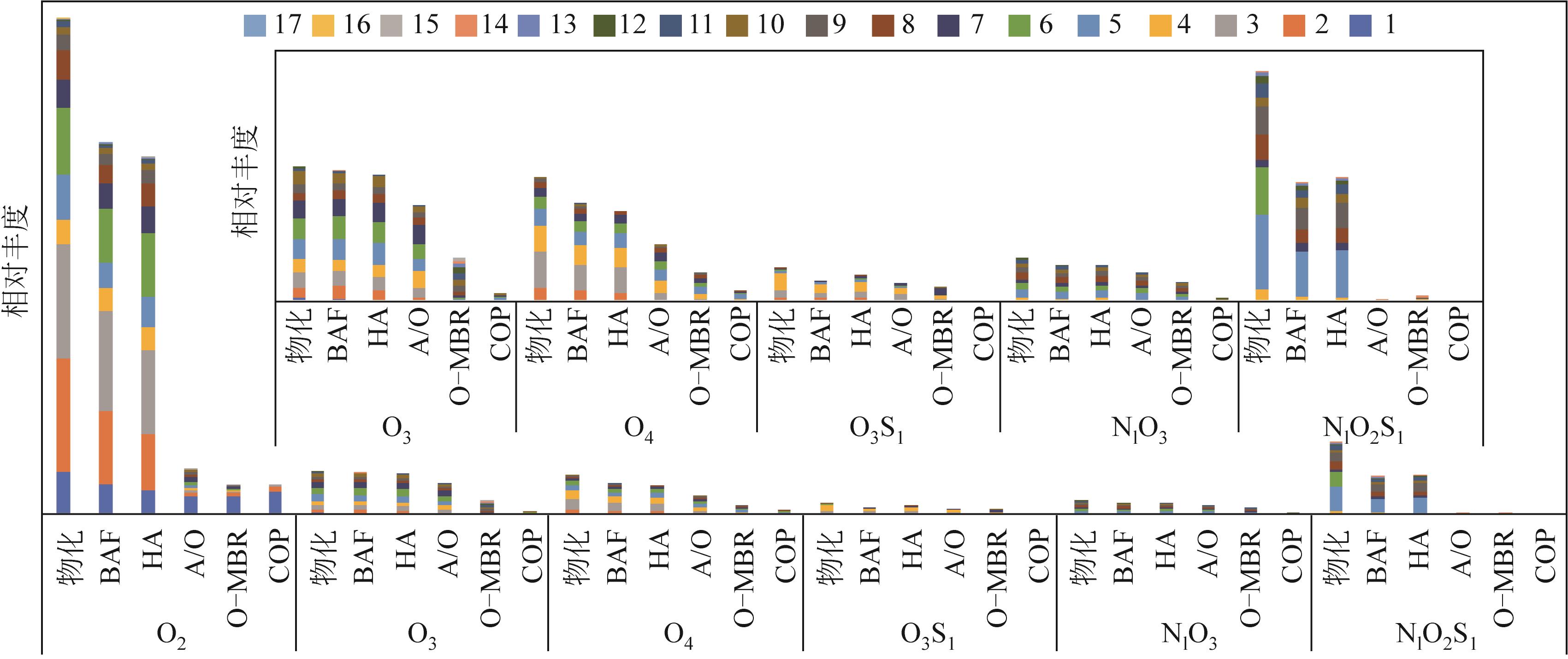| 1 |
夏瑜, 何绪文, 徐恒, 等. 典型电脱盐废水预处理技术及其应用[J]. 化工环保, 2020, 40(1): 1-6.
|
|
XIA Yu, HE Xuwen, XU Heng, et al. Typical pretreatment technologies of electric desalination effluents and their application[J]. Environmental Protection of Chemical Industry, 2020, 40(1): 1-6.
|
| 2 |
李长刚, 郎旭东, 郭绍辉, 等. 三种典型原油炼制企业点源污水氮污染物形态分布及排放特征[J]. 石油科学通报, 2019, 4(2): 204-212.
|
|
LI Changgang, LANG Xudong, GUO Shaohui, et al. Morphological distribution and discharge characteristics of nitrogen pollutants in point source wastewater from three typical crude oil refining enterprises[J]. Petroleum Science Bulletin, 2019, 4(2): 204-212.
|
| 3 |
PINZÓN-ESPINOSA A, KANDA R. Naphthenic acids are key contributors to toxicity of heavy oil refining effluents[J]. Science of the Total Environment, 2020, 729: 138119.
|
| 4 |
龚朝兵, 肖立光, 钟震, 等. 采用臭氧-内循环曝气生物滤池工艺处理高酸重质原油含盐污水[J]. 石化技术与应用, 2015, 33(5): 437-440.
|
|
GONG Chaobing, XIAO Liguang, ZHONG Zhen, et al. Treatment of saline wastewater from high acid heavy crude oil by ozonizing-biological aerated filter combined process[J]. Petrochemical Technology & Application, 2015, 33(5): 437-440.
|
| 5 |
王晓猛, 张黎明, 姚亮, 等. 电脱盐污水除油设施在常减压蒸馏装置中的应用[J]. 炼油技术与工程, 2013, 43(7): 36-39.
|
|
WANG Xiaomeng, ZHANG Liming, YAO Liang, et al. Application of oil removal facility for electric desalting wastewater in atmospheric-vacuum distillation units[J]. Petroleum Refinery Engineering, 2013, 43(7): 36-39.
|
| 6 |
薛建良, 赵东风, 李石, 等. 炼化企业含盐废水处理的研究进展[J]. 工业水处理, 2011, 31(7): 22-26.
|
|
XUE Jianliang, ZHAO Dongfeng, LI Shi, et al. Study on brine wastewater treatment in refineries[J]. Industrial Water Treatment, 2011, 31(7): 22-26.
|
| 7 |
李凌波, 齐敏, 申开莲, 等. 气相色谱-质谱法表征炼油厂外排废水中的有机组分[J]. 中国环境监测, 2000, 16(2): 32-36.
|
|
LI Lingbo, QI Min, SHEN Kailian, et al. Characterization of organic components in wastewater discharged from refinery by gas chromatography-mass spectrometry[J]. Environmental Monitoring in China, 2000, 16(2): 32-36.
|
| 8 |
栗则, 季远玲, 张宇曦, 等. GC-MS解析炼化污水中挥发性有机物组成和变化[J]. 化工进展, 2018, 37(10): 4053-4059.
|
|
LI Ze, JI Yuanling, ZHANG Yuxi, et al. Application of GC-MS for the determination of volatile organic compounds in refinery wastewater treatment process[J]. Chemical Industry and Engineering Progress, 2018, 37(10): 4053-4059.
|
| 9 |
BARROW M P, WITT M, HEADLEY J V, et al. Athabasca oil sands process water: characterization by atmospheric pressure photoionization and electrospray ionization fourier transform ion cyclotron resonance mass spectrometry[J]. Analytical Chemistry, 2010, 82(9): 3727-3735.
|
| 10 |
QIAN K N, RODGERS R P, HENDRICKSON C L, et al. Reading chemical fine print: resolution and identification of 3000 nitrogen-containing aromatic compounds from a single electrospray ionization Fourier transform ion cyclotron resonance mass spectrum of heavy petroleum crude oil[J]. Energy & Fuels, 2001, 15(2): 492-498.
|
| 11 |
BARROW M P, PERU K M, FAHLMAN B, et al. Beyond naphthenic acids: environmental screening of water from natural sources and the Athabasca oil sands industry using atmospheric pressure photoionization Fourier transform ion cyclotron resonance mass spectrometry[J]. Journal of the American Society for Mass Spectrometry, 2015, 26(9): 1508-1521.
|
| 12 |
YE Huangfan, LIU Baodong, WANG Qinghong, et al. Comprehensive chemical analysis and characterization of heavy oil electric desalting wastewaters in petroleum refineries[J]. Science of the Total Environment, 2020, 724: 138117.
|
| 13 |
YE Huangfan, CHEN Lin, KOU Yue, et al. Influences of coagulation pretreatment on the characteristics of crude oil electric desalting wastewaters[J]. Chemosphere, 2020, 264: 128531.
|
| 14 |
FANG Zhi, LI Lijie, JIANG Bin, et al. Molecular composition and transformation of dissolved organic matter (DOM) in coal gasification wastewater[J]. Energy & Fuels, 2019, 33(4): 3003-3011.
|
| 15 |
KASPRZYK-HORDERN B, ZIÓŁEK M, NAWROCKI J. Catalytic ozonation and methods of enhancing molecular ozone reactions in water treatment[J]. Applied Catalysis B: Environmental, 2003, 46(4): 639-669.
|
| 16 |
WANG Jianlong, CHEN Hai. Catalytic ozonation for water and wastewater treatment: recent advances and perspective[J]. Science of the Total Environment, 2020, 704: 135249.
|
| 17 |
ZHANG Lei, ZHANG Yanyan, GAMAL EL-DIN M. Integrated mild ozonation with biofiltration can effectively enhance the removal of naphthenic acids from hydrocarbon-contaminated water[J]. Science of the Total Environment, 2019, 678: 197-206.
|
| 18 |
LI Yongyong, FANG Zhi, HE Chen, et al. Molecular characterization and transformation of dissolved organic matter in refinery wastewater from water treatment processes: characterization by fourier transform ion cyclotron resonance mass spectrometry[J]. Energy & Fuels, 2015, 29(11): 6956-6963.
|
| 19 |
LI Y Y, XU C M, Chung K H, et al. Molecular characterization of dissolved organic matter and its subfractions in refinery process water by Fourier transform ion cyclotron resonance mass spectrometry[J]. Energy & Fuels, 2015, 29(5): 2923-2930.
|
| 20 |
ZHANG Bingliang, SHAN Chao, WANG Shu, et al. Unveiling the transformation of dissolved organic matter during ozonation of municipal secondary effluent based on FT-ICR-MS and spectral analysis[J]. Water Research, 2021, 188: 116484.
|
| 21 |
GONSIOR M, ZWARTJES M, COOPER W J, et al. Molecular characterization of effluent organic matter identified by ultrahigh resolution mass spectrometry[J]. Water Research, 2011, 45(9): 2943-2953.
|
| 22 |
FÓNAGY O, SZABÓ-BÁRDOS E, HORVÁTH O, et al. Application of ozonation and silveration for heterogeneous photocatalytic degradation of an aromatic surfactant[J]. Journal of Photochemistry and Photobiology A: Chemistry, 2018, 366: 152-161.
|
| 23 |
ZHENG Fang, WANG Jie, XIAO Rui, et al. Dissolved organic nitrogen in wastewater treatment processes: transformation, biosynthesis and ecological impacts[J]. Environmental Pollution, 2021, 273: 116436.
|
| 24 |
JIA Xiaoqiang, JIN Dayao, LI Chen, et al. Characterization and analysis of petrochemical wastewater through particle size distribution, biodegradability, and chemical composition[J]. Chinese Journal of Chemical Engineering, 2019, 27(2): 444-451.
|
| 25 |
KUSIC H, KOPRIVANAC N, BOZIC A L. Minimization of organic pollutant content in aqueous solution by means of AOPs: UV- and ozone-based technologies[J]. Chemical Engineering Journal, 2006, 123(3): 127-137.
|
| 26 |
VAIOPOULOU E, MISITI T M, PAVLOSTATHIS S G. Removal and toxicity reduction of naphthenic acids by ozonation and combined ozonation-aerobic biodegradation[J]. Bioresource Technology, 2015, 179: 339-347.
|
| 27 |
AFZAL A, CHELME-AYALA P, DRZEWICZ P, et al. Effects of ozone and ozone/hydrogen peroxide on the degradation of model and real oil-sands-process-affected-water naphthenic acids[J]. Ozone Science & Engineering, 2015, 37(1): 45-54.
|
 ), CHEN Yu2, YE Huangfan1, WANG Qinghong1, CHEN Chunmao1(
), CHEN Yu2, YE Huangfan1, WANG Qinghong1, CHEN Chunmao1( )
)
 ), 陈宇2, 叶黄凡1, 王庆宏1, 陈春茂1(
), 陈宇2, 叶黄凡1, 王庆宏1, 陈春茂1( )
)




